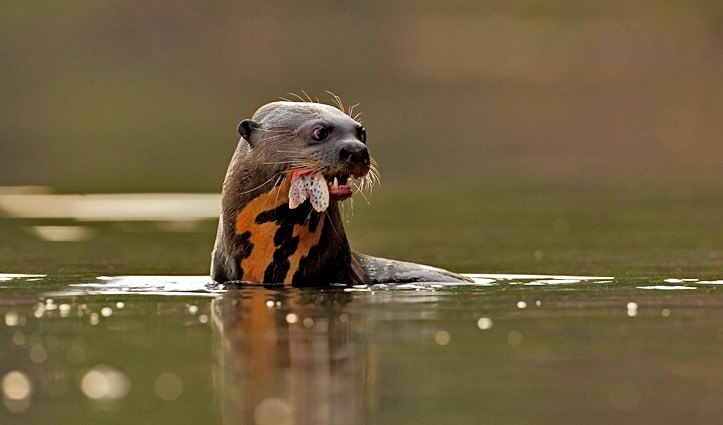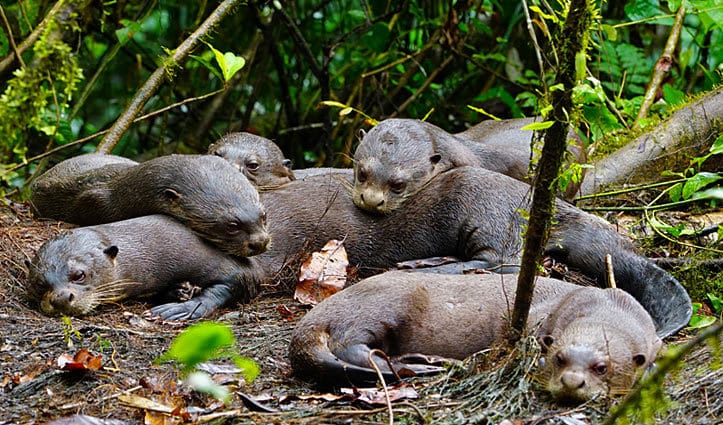22 Mar The Lobo De Rio (Wolf of the River – Giant Otter)
The Lobo De Rio (Wolf of the River – Giant Otter)
Alex Burridge – South America Travel Centre
Twenty years ago the Añangu Kichwa Community in Ecuador collectively gave up subsistence hunting and fishing (their legal right) to allow local wildlife populations to recover. Here, as in all other places in the Amazon, wildlife had been depleted by hunting. Añangu decided to put all its efforts into nature tourism and the development of Napo Wildlife Center, favouring the observation of Amazon wildlife species in its traditional habitat, free and without the fear of humans, over hunting of its inhabitants.
And it appears to be working with the confirmed birth of three giant otter cubs in the wetlands within the territory of the community. Their conservation status (within Ecuador) is Critically Endangered; after decades of indiscriminate hunting. Napo Wildlife Center is part of Yasuní National Park and offers otters a safe refuge with enough fish for the otters to stay and to reproduce.

This aquatic carnivore, the most threatened carnivore in South America, is six feet in length, noisy and where they exist are easy to locate. Locally it is known as the ‘Wolf of the River’; a prolific hunter catching fish at will. It is hoped that the confirmation of this wonderful event, which even means that the giant otter population in the Yasuní has grown by 10%, will encourage other communities to see that there are alternatives to subsistence hunting.
It’s not only the giant otters that benefit from the protection of the rainforest by the Añangu Kichwa Community they also protect numerous primates; golden mantled Tamarin, squirrel monkey, white-fronted capuchin, monk saki, night monkey, red howler, saki monkey & spider monkey. As well as jaguarundi, jaguar, Brazilian Tapir, collared peccary and of course the giant whose existence in other parts of Ecuador (and Amazon rainforest more generally) is increasingly uncertain. The quality of life in this community combined with the abundance of wildlife confirms the possibility that development can exist without harming nature.

To book your holiday in Ecuador contact us on 1300 784 794 or email: contact@satc.com.au.
Subscribe to our email newsletter to hear about our latest news, new experiences and all things Latin America.

